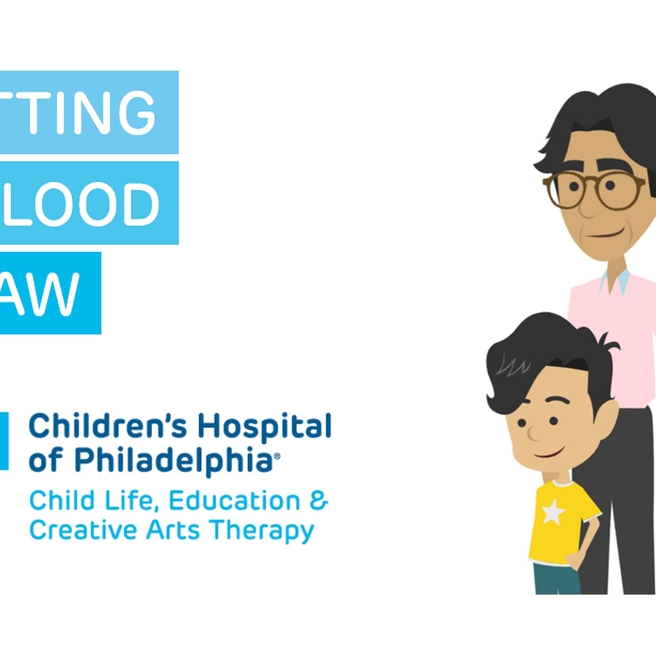
In today's world, it's more important than ever to make sure your child regularly visits the doctor – not just when they are sick, but also when they are well.
Well-child visits allow your pediatrician to examine your child holistically, assess their physical and emotional needs, support their growth and development, and intervene quickly if any issues arise.
What are the risks of skipping well-child visits?
If your child is healthy, it can be easy to let well visits fall by the wayside. While those annual checkups may seem like just another thing to fit into your family’s hectic schedule, they play a crucial role in preventing future problems.
Well visits are essential to ensure your child gets the required vaccinations to attend school, go to daycare and participate in sports. Visiting the pediatrician when your child is well also provides you with an opportunity to ask questions – and get expert answers – about your child’s health, development and well-being. Delaying these visits can put your child at greater risk of illness or delay needed interventions. For example, many common developmental delays are discovered during routine checkups with pediatricians – early intervention makes a big difference in getting your child the support they need before something small turns into a bigger issue.
What to expect at a well-child visit
During an annual wellness visit, your child's pediatrician will:
- Determine if your child is meeting growth and developmental milestones for their age.
- Evaluate your child's vision and hearing for anything out of the ordinary – it's important to catch these issues early.
- Ask about sudden changes in your child's usual activities, mood and overall health.
- Assess your child's mental health, and ask questions about how they are coping with school, friends, family and any other outside influences.
- Provide immunizations for childhood diseases and common conditions that affect children or young adults, such as measles and HPV.
- Give sports physicals to children who want to want to participate in competitive sports at school or in the community.
- Get to know your child: their diet, sleeping patterns, nutrition, social interactions, behavior and stress levels
- Help your child establish healthy habits and provide tips for families to reinforce these at home.
- Provide age- and behavior-based counseling for teens on topics such as driver safety, depression and drug or alcohol use.
- Check in on how your family is doing and identify any supportive resources or advice related to navigating daily life.
What are the ages for well-child visits?
A standard well-child visit schedule spans from infancy through adolescence, and includes checkups at the following ages:
- In your baby’s first year: Newborn visit (3-5 days after birth), at 1 month old, 2 months, 4 months, 6 months, 9 months, and at 12 months
- 15 months
- 18 months
- 2 years
- 2½ years
- 3 years
- 4 years
- 5-6 years
- 7-8 years
- 9-10 years
- 11-14 years
- 15-17 years
- 18-21 years
Your pediatrician can be a trusted partner at every age and stage of your child’s development.
In today's world, it's more important than ever to make sure your child regularly visits the doctor – not just when they are sick, but also when they are well.
Well-child visits allow your pediatrician to examine your child holistically, assess their physical and emotional needs, support their growth and development, and intervene quickly if any issues arise.
What are the risks of skipping well-child visits?
If your child is healthy, it can be easy to let well visits fall by the wayside. While those annual checkups may seem like just another thing to fit into your family’s hectic schedule, they play a crucial role in preventing future problems.
Well visits are essential to ensure your child gets the required vaccinations to attend school, go to daycare and participate in sports. Visiting the pediatrician when your child is well also provides you with an opportunity to ask questions – and get expert answers – about your child’s health, development and well-being. Delaying these visits can put your child at greater risk of illness or delay needed interventions. For example, many common developmental delays are discovered during routine checkups with pediatricians – early intervention makes a big difference in getting your child the support they need before something small turns into a bigger issue.
What to expect at a well-child visit
During an annual wellness visit, your child's pediatrician will:
- Determine if your child is meeting growth and developmental milestones for their age.
- Evaluate your child's vision and hearing for anything out of the ordinary – it's important to catch these issues early.
- Ask about sudden changes in your child's usual activities, mood and overall health.
- Assess your child's mental health, and ask questions about how they are coping with school, friends, family and any other outside influences.
- Provide immunizations for childhood diseases and common conditions that affect children or young adults, such as measles and HPV.
- Give sports physicals to children who want to want to participate in competitive sports at school or in the community.
- Get to know your child: their diet, sleeping patterns, nutrition, social interactions, behavior and stress levels
- Help your child establish healthy habits and provide tips for families to reinforce these at home.
- Provide age- and behavior-based counseling for teens on topics such as driver safety, depression and drug or alcohol use.
- Check in on how your family is doing and identify any supportive resources or advice related to navigating daily life.
What are the ages for well-child visits?
A standard well-child visit schedule spans from infancy through adolescence, and includes checkups at the following ages:
- In your baby’s first year: Newborn visit (3-5 days after birth), at 1 month old, 2 months, 4 months, 6 months, 9 months, and at 12 months
- 15 months
- 18 months
- 2 years
- 2½ years
- 3 years
- 4 years
- 5-6 years
- 7-8 years
- 9-10 years
- 11-14 years
- 15-17 years
- 18-21 years
Your pediatrician can be a trusted partner at every age and stage of your child’s development.
Recommended reading
Getting a Blood Draw

This resource is to prepare your child for their blood draw.
Prepare Your Child for a Vaccine

This child-friendly learning resource can help prepare your child for getting a vaccine. Learn about what a vaccine is and what it can be like before, during and after.